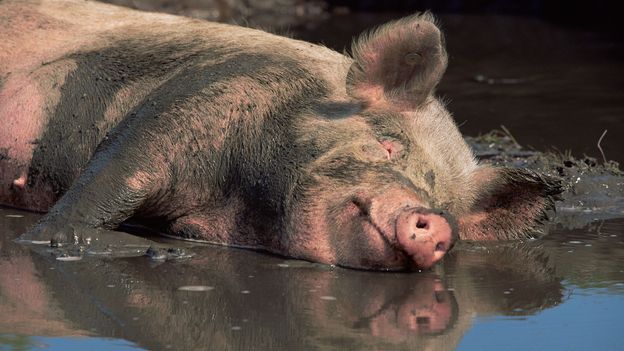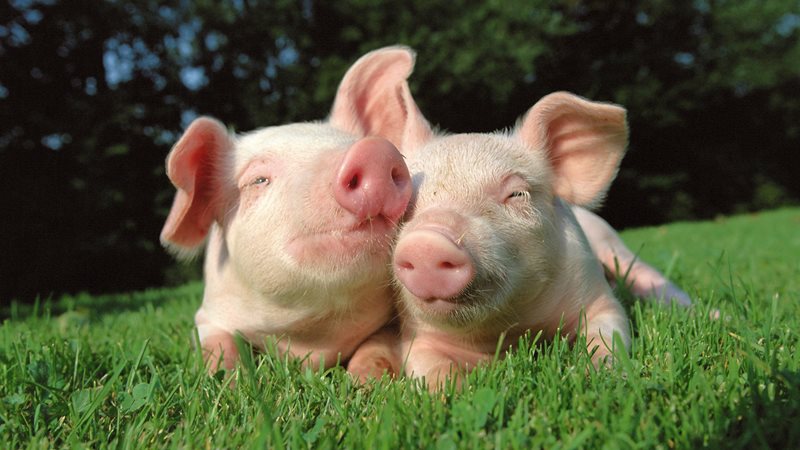Why nearly 1/3 of the globe doesn’t eat pork – Jason Sims
Here is some food for thought. Pork is the most consumed meat in the world, rather unsurprisingly as it is incredibly diverse, it is used for bacon, sausages, black pudding, pork chop, pork shoulder, roasts and so much more. Despite making up around 36% of the meat consumed in the world, 1/3 of the world do not eat it. Simply, this is part of the Jewish religious teachings, as well as Islam and to some extent Hinduism, it is classed as a non-preferred meat. Now we know this to be true and common practice, it is a meat that is seen as unclean, but why? The truth about this is that we do not know, and this has surprisingly been studied by a host of experts such as archaeologists, anthropologists and even theologians have tried to understand the origins of such a belief and practice. Despite many theories and scholarly investigations, there is still no definitive reasoning for this.

The Torah, the five books of Moses and first part of the Jewish bible, is considered to be the first written document that condemns pork as part of the Abrahamic religious laws. In Deuteronomy 14:21 it is stated that if a beast has a ‘hoof, and is clovenfooted, and cheweth the cud’ then they can be eaten, and while a pig has a cloven hoof, it does not chew the cud. Firstly, what does it mean to have a cloven hoof? Essentially, its hoof split to form something we could recognise as toes, pigs, goats, cows, sheep and deer all have this feature. But the thing that differentiates a pig is that it does not chew its cud. To chew the cud means to further chew partly digested food, however pigs, like humans, have an efficient digestive system and so they can eat their food in one go.

Despite outlining this as a rule, the Bible and other religious texts fail to elaborate on what makes this a problem and the Quran equally makes the firm rule states that you are forbidden from eating swine, carrion and blood unless you are starving. Now, that list there provides initial insight as both blood and carrion (carcass) are prone to spreading diseases and so naturally we can assume pork is forbidden due to the assumption that it too spreads severe illnesses. That was a rule established thousands of years ago and it took until the 19th century for scientists to discover credibility to the idea that pork causes illnesses when the connection between trichinosis (a parasitic disease) and roundworms which are often found in undercooked pork.
However, modern scientific theory looked to disprove this, the American anthropologist Marvin Harris wrote a book on the history of meat taboos and the diseases we get from consuming such products. He suggested that pork was no worse than sheep, cows and chickens which all spread anthrax (a disease eradicated through vaccinations in the modern period). It is considered that anthrax may actually be the fifth plague of Egypt. He further argues that the connection between trichinosis and pork in religious teachings is a convenient view as trichinosis was prominent throughout the 19th century.

If we consider a final popular reason for why pork consumption is bad, then we should look to ancient philosophers who described the habits and food pigs eat to be very dirty and loathsome. Of course, we have many negative ideas about pigs, as they eat anything including roadkill and rubbish, but not all of them are true. The common phrase you sweat like a pig is fundamentally flawed since pigs have no sweat glands. The other misunderstanding, we have about them is the fact they are dirty and muddy and role in their faeces. Yet, wild pigs are clean and its only farmed pigs that are muddy, this is because pigs can’t sweat and can’t pant due to small lung capacity and so when there is no shade, and it is very hot (often the case in farms) they must roll in mud to cool down and where that is not an option they resort to their faeces. This links back to the religious teachings as thousands of years ago when population growth occurred and farmers stored more pigs without shade, people saw some of the dirtier habits of the animal. Additionally, because pigs cannot eat grass due to its digestive system reflecting our own, humans and pigs often conflicted with each other over the same food.


And so, it is easy to understand through one of these few reasons as to why pork is considered unclean and therefore not eaten by 1/3 of the glove. Yet, none of this can truly be confirmed and remains speculation.















Post Comment
You must be logged in to post a comment.